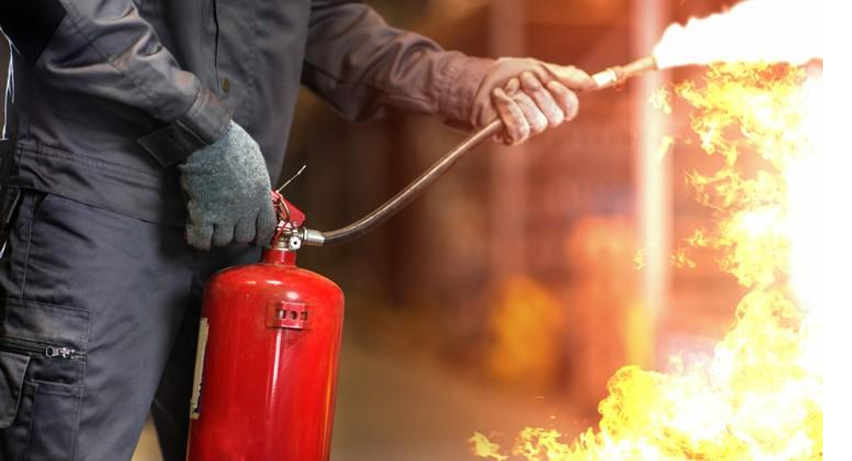In the realm of business operations, the importance of safeguarding assets, ensuring the safety of employees, and maintaining continuous operations cannot be overstated. Fire hazards pose one of the most severe risks among the many threats to business continuity. Commercial and industrial establishments face unique fire safety challenges, making it crucial to implement comprehensive fire protection measures.
This article uncovers the critical role of commercial fire protection services and industrial fire safety solutions in protecting businesses.
Understanding the Fire Risk in Commercial and Industrial Settings
Commercial and industrial environments are inherently susceptible to fire hazards due to the presence of flammable materials, complex electrical systems, and extensive human activity. Whether it’s a retail store, office building, manufacturing plant, or warehouse, each type of business has specific fire risks that need appropriate fire protection solutions.
Commercial Fire Protection Services
Fire protection services are designed for commercial entities to safeguard assets, ensure customer and employee safety, and comply with local fire safety regulations. Commercial fire protection services encompass a range of solutions, including:
- Fire Detection Systems: Early detection is critical in minimising fire damage. Smoke detectors, heat detectors, and alarm systems provide the first line of defence by alerting occupants and emergency services of a fire outbreak.
- Fire Suppression Systems: These systems, like sprinklers, gas suppression systems, and fire extinguishers, play a crucial role in controlling and extinguishing fires before escalating.
- Fire Safety Planning and Training: Educating employees about fire safety protocols, conducting regular fire drills, and preparing comprehensive evacuation plans are essential components of commercial fire safety systems.
Industrial Fire Safety Solutions
Industrial environments require specialised fire safety solutions. Industrial fire safety solutions focus on preventing fire incidents and minimising the fire impact that does occur. Key elements include:
- Advanced Fire Detection and Alarm Systems: Industrial facilities require more sophisticated detection systems that can handle high temperatures, dusty conditions, and the presence of chemicals. Flame detectors, infrared sensors, and explosion-proof alarms are commonly used.
- Fire Suppression Technologies: Depending on the specific hazards, industrial settings might use deluge systems, foam suppression systems, or inert gas systems to control fires. These technologies are designed to respond rapidly and effectively to fires in challenging environments.
- Hazardous Material Management: Proper storage and handling of flammable and combustible materials are vital. This includes using fire-resistant containers, proper labelling, and adherence to safety protocols.
Benefits of Fire Protection for Businesses
- Protection of Life and Property
The benefit of implementing robust fire protection measures is the protection of human life. Ensuring the safety of employees, customers, and visitors is a fundamental responsibility of any business. Effective fire protection safeguards property and critical business assets, preventing potentially devastating financial losses.
- Regulatory Compliance
Businesses are required to comply with local, state, and federal fire safety regulations. Non-compliance can result in hefty fines, legal liabilities, and business shutdowns. By investing in comprehensive fire protection systems, businesses can ensure they meet all regulatory requirements and avoid these penalties.
- Business Continuity
Fires can cause significant interruptions to business operations. From temporary shutdowns to the destruction of facilities, the impact of a fire can be long-lasting. Fire protection solutions for industries are designed to minimise downtime and ensure that businesses can quickly resume operations after a fire incident.
- Insurance Benefits
Insurance companies offer lower premiums to businesses with robust fire protection systems. This is because the risk of severe fire damage is significantly reduced, making the business a lower risk to insure. Investing in commercial and industrial fire prevention systems can result in substantial long-term savings.
Essential Fire Protection Solutions for Industries
- Fire Risk Assessment
A thorough fire risk assessment is the foundation of any effective fire protection strategy. This involves identifying potential fire hazards, evaluating the adequacy of existing fire protection measures, and recommending improvements. Business fire safety services conduct detailed assessments to develop fire safety plans.
- Customised Fire Protection Systems
Customising fire protection systems to address specific risks and operational requirements is crucial. For example, a manufacturing plant dealing with flammable chemicals will have different needs than a commercial office building.
- Regular Maintenance and Testing
Fire protection systems require regular maintenance and testing to ensure they function correctly in an emergency. This includes inspecting fire alarms, testing sprinkler systems, and checking the expiration dates of fire extinguishers. Scheduled maintenance helps identify and rectify any issues before they compromise safety.
- Employee Training and Emergency Preparedness
Regular training programs should be conducted to educate staff on fire prevention practices, emergency response procedures, and the use of fire safety equipment. Conducting periodic fire drills ensures everyone knows how to evacuate safely and quickly.
Conclusion
From early detection and advanced suppression technologies to employee training and emergency preparedness, a suitable approach to fire protection for businesses is essential for safeguarding routine operations. Implementing effective fire protection solutions not only minimises risks but also provides peace of mind, allowing businesses to focus on growth and success without the looming threat of fire-related disruptions.





